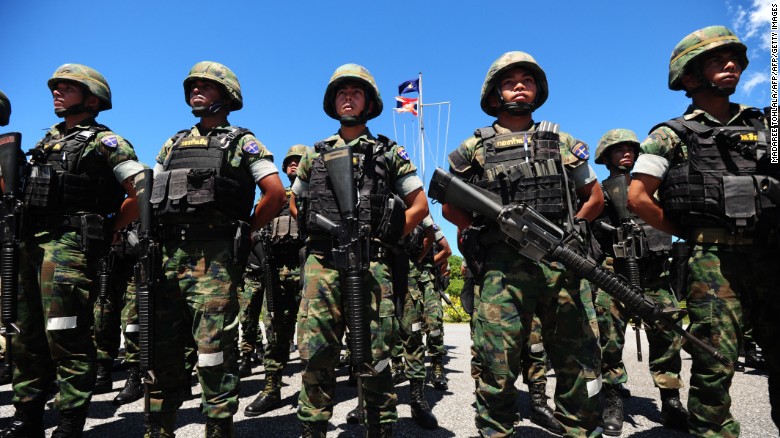
Polls have opened across Thailand, enabling millions to vote on a new constitution that, if passed, gives extra powers to the military, which seized control of the government in a 2014 coup.
Voters will be asked whether they accept the draft constitution, and whether to permit the country’s Senate to jointly vote for Prime Minister along with the House of Representatives.
Results are expected late Sunday evening local time. If passed, it will be Thailand’s 20th constitution.
Military control
Prime Minister Prayut Chan-o-cha, former commander in chief of the Thai army, claims the new constitution is part of a road back to full democracy.
Prayut said Friday that he will personally vote in favor of the constitution.
However, many Thais and international observers are skeptical of those claims, as the new constitution will cement military rule throughout the country’s governmental institutions.
Among the sweeping changes introduced, the document will allow for the Prime Minister to be appointed by the National Assembly, rather than elected, and reserves seats in the Senate for the military.
The drafting process which led to the document being voted on was also heavily dominated by the military, and discussion or criticism of the new constitution was muzzled.
“The junta’s use of its draconian sedition law against critics of the draft constitution creates a climate of fear ahead of the referendum,” Brad Adams, Asia director of Human Rights Watch, said in a statement.
“Military repression has become a daily reality in Thailand, and it’s intensifying as the August 7 vote approaches.”
Analysts say the constitution will allow the military to maintain power in future without the need to stage coups, of which Thailand has seen 12 since 1932.
“The draft constitution aims to entrench the power of the military and traditional elite, and if it passes the referendum Thailand will move toward semi-authoritarianism guided by the military,” according to the Institute of Southeast Asian Studies, a Singapore-based research organization.
“With the army’s power embedded in the constitution, backed by the Constitutional Court’s “state of exception” powers, the traditional elites would in effect have designed new mechanisms to seize power without resorting to a military coup.”
As reported by CNN
